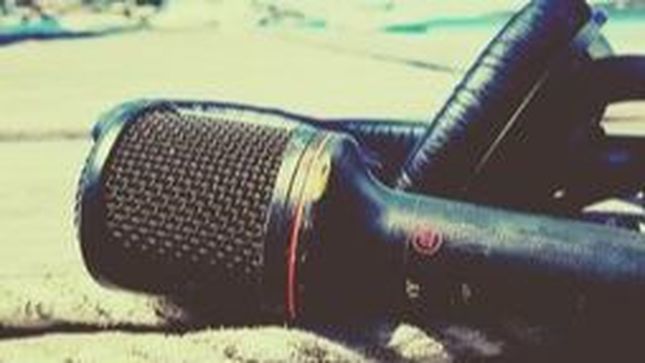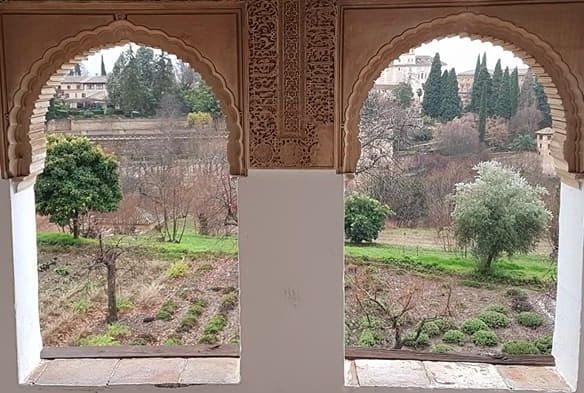|
Have you heard the term ‘lean in’? It conjures an image of a person listening intently, leaning forward to get closer to the source. A podcast is a ‘lean in’ listening experience. It means the audience member has actively sought out and chosen the audio - they’ve made a particular kind of commitment to listen. And that audio is right in their ears via their headphones, so it needs to sound good, and keep their close attention. It stands in direct contrast to switching on your favourite radio station and having it burble away in the background of your daily life.
Stylistically, daily radio and chit chat is light of touch, quick and cheap to prepare and ebbs and flows through the day. But there was one Australian network which was perfectly placed for the podcast revolution. The work, particularly coming from the documentary features unit, was self-contained - it had a beginning, middle and end, was focused in its content, carefully planned, highly edited and deliberately structured to draw the listener along - even when it appeared to also be conversational. That network was ABC RN, where I worked as a documentary and podcast maker for 20 years. Staff producers at ABC RN are multi-skilled and independent operators - an individual maker will cover every aspect of a production right up to the final mix - from conception, research, interview coordination, writing question briefs, conducting interviews, enticing the interviewee to present at their best and make sense. Then there'd be presentation, editing and sound design - all these together being the hallmarks of quality listening. So, this kind of radio evolved to become podcasting, and it makes sense that RN and its staff producers, were early adopters. Now, a podcast (or radio) of this kind may attract a smaller audience than daily radio tots up, but each listener has come on purpose to hear content that is relevant to them. They are an interest-group audience and they may well be ‘influencers’. As podcasts become ubiquitous, to keep that audience it's vital the ideas are rich, the guests engaging, and the audio object be well-crafted and tightly edited. A good podcast series needs the development of a dynamic narrative flow, not just within each episode but across the series. While there are many blog-style chatty podcasts around made by newcomer makers hopeful of hitting the big-time, the quality is often dodgy to to average. If, as a brand, you want to make an impact, you’ll need serious production skills. Consider this: A 30 minute conversation between host and talent could have 200-400 editing decisions made out of 75 minutes raw recording, to cut out excessive ums, ahs, and waffling interjections. Add sound design, theme music and scripting and there are even more decisions to make. An hour’s interview takes the time it takes to play and consider and cannot be skimmed and cut like a word document. If you don’t remove the waffle and construct the direction of the unfolding conversation, your podcast becomes unfocused, and your audience drifts away. In other words - you need a high ‘hook’ count. Finally, essential to impactful, intelligent podcasting is an ear for a great voice and/or strong story; empathy in the listening and a careful approach to delicate content; an ability to translate complex ideas into accessible but captivating content; excellent organisational skills to coordinate talent, editing and sound engineering; a big picture overview with creative problem solving on the hop; an understanding of great mic technique; the experience to work under pressure and deliver to deadline; and a charming and engaging manner to entice the best from the interviewee, and the listener to stick around.
2 Comments
There's been a lot of talk on podcasting forums about duration of the podcast. Should it be 20 minutes? an hour? 90 minutes? I used to make hour-long documentaries for a program which in its turn, in the 1990s ran for an hour and a half. Such a thing is unthinkable now - apparently no one has the interest or time to spend, but while times have changed - both literally and metaphorically, the art and craft of interview has not. Does your audience really want to listen to 90 minutes of rambling conversation? Frankly - no. Do your audience the courtesy of good, tight editing, but also tight and structured interviewing in the first place.
Having been a print journalist, I know it's easy to ask questions in any order and it's easy to can get away with a rambling discussion, from which to cherry pick what goes in between the " ". Writers can then create the story as they wish, from the pivot points to the reveal, removing along the way their own (my own!) bumbling enquiries by masterfully writing linking sentences and paragraphs. But for an audio interview the skill lies in two main areas. One is great research. Research can be into material found publicly, but also a pre-interview can be very handy. To gather background and stories not available in written form,and also assess speaking style of your guest, let them get to know you, and work out what you have to do to encourage them to speak confidently. The other essential is your brief - your road map to the way you want the interview to unfold. And it is a journey, through introduction, detail, and emotional impact. You want to decide at which point the complexities, the pivot points, the 'yes, but' moments will occur before you start the conversation. You are the listener's proxy - so start with the simple questions you'd ask if you didn't already know the answers, and from there guide the interviewee towards the trickier territory. By 'tricky' I mean anything from technical details to emotional content. The interview opening is really crucial to enticing your listener to join you on this trip and to keep them curious, so structure your brief as if you are all beginning together - interviewee, interviewer, and listener. And, this is key: if you start with the complex material, believe me, in a conversation it's very difficult to go back to the moment where you didn't know something. The tone of voice changes, and assumed knowledge happens. Always start with the basics. Who, what, where, when, then why. Of course, there will always be a surprise, even with all this backgrounding. Surprises are listening gold and often happen through the performance pressure of the recorded interview. They perk everyone up and keep you hooked. To continue the journey metaphor - what's around the corner on the actual street is always very different to what's on the map - even with google streetview! Smells, sounds, tastes ... the weather. All remain unpredictable. But a well-prepared road map will keep you and your listener heading in the right direction, as well as make the interviewee feel that they are in confident hands. As an aside, on the brief I usually put key points I want covered in light font or in brackets to remind me to prompt further, if the interviewer doesn't cover everything I need. Finally, as a voice interviewer, remember your questions will be heard. They must be tight, so keep them short. The tone of your voice has to be engaging. Don't ramble or speculate or go on at length about your own experience. And if you do, be prepared to edit well - ask in such a way that you can edit - with lots of pauses for easy cutting. Speak in whole sentences. Often your questions will be the propelling material for a change of direction, a shift in pace or tone. So you need to plan for this. Interviewer questions sound more natural than a scripted link, and are useful for changing up the tone of your own voice in your podcast, so bear this in mind also - you might want to include some summary information to move the topic along in that question and avoid another link. In summary - keep it tight, plan it well - and neither of you will come off the road (sorry couldn't resist). And as usual - feel free to ask me any questions you have, on the art and craft of interviewing. |
AuthorRadio maker and passionate environmental communicator, Gretchen Miller is available to make you a podcast or teach you how to tell your story. Archives
August 2018
Categories
All
|
Proudly powered by Weebly


 RSS Feed
RSS Feed